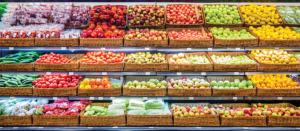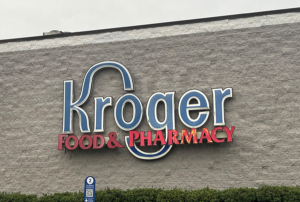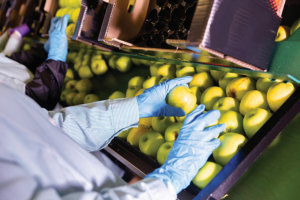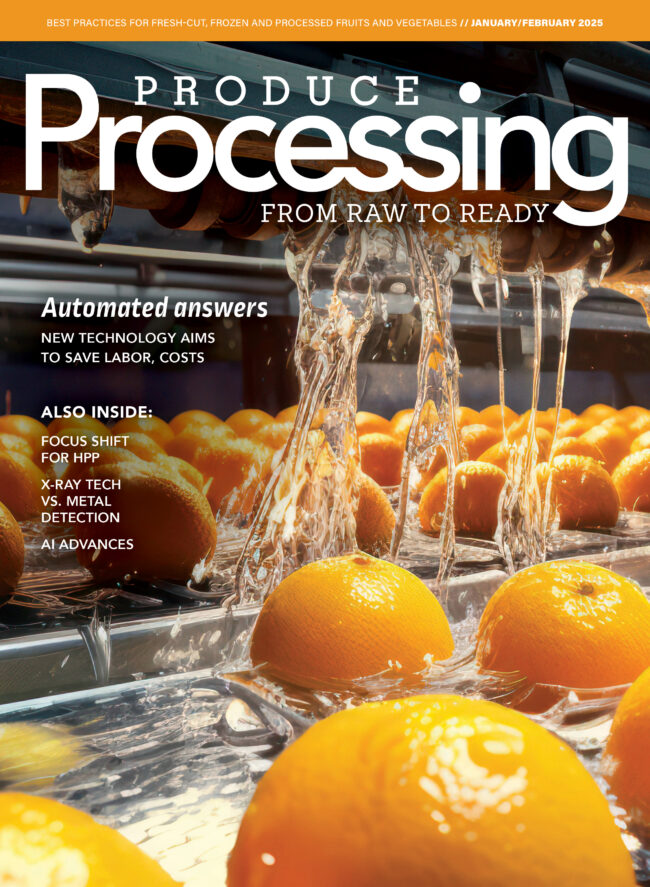Accelerated deadline: FSMA 204 compliance may be reality faster than anticipated
A new U.S. Food and Drug Administration rule requiring additional traceability records for certain foods goes into effect in January 2026, but the deadline for compliance may become a reality even sooner.
The FDA’s Food Traceability Final Rule establishes recordkeeping requirements beyond existing regulations and will implement Section 204(d) of the Food Safety Modernization Act (commonly known as FSMA 204) for persons who manufacture, process, pack or hold foods included on the Food Traceability List (FTL). Records containing Key Data Elements (KDEs) associated with Critical Tracking Events (CTEs) must be maintained and quickly providable to the FDA.
The goal is faster identification and removal of potentially contaminated food from the market. A recent salmonella outbreak linked to cantaloupes and subsequent recall affecting several produce suppliers and retailers provided a somber reminder of the importance of rapid traceability. The outbreak was declared over on Jan. 19, but not before six people died and 407 were sickened in 44 states, according to the Centers for Disease Control.
At least one retail giant has already taken steps to beef up its traceability measures well before the FDA deadline, and a company working to streamline the compliance process expects more to follow.

GAME-CHANGING MEMO
On Dec. 1, 2023, The Kroger Co. sent a memo to its suppliers that sent ripples throughout the grocery supply chain. The memo notified suppliers that Kroger intended to collect and record traceability information for all food products entering its facilities — not just those on the FTL — by June 30, 2025.
“By taking these steps, Kroger believes we are taking the appropriate actions to ensure both our companies will satisfy the FDA’s Final Rule requirements,” the memo, addressed to “Valued Supplier,” stated.
That decision “changes everything,” according to Randy Fields. Fields is chair and CEO of ReposiTrak, a global food traceability and regulatory compliance network which connects food supply chain companies and wholesalers through an inventory management platform. Network members can exchange KDEs for each CTE in their supply chains.
“(The memo) says two things that I think have galvanized the industry. Kroger has said all food is now going to be traced. That’s No. 1,” Fields said. “So for example, if you had a retail store with 60,000 SKUs, before the Kroger announcement, maybe five to seven thousand of those SKUs were covered by rule 204. That’s a lot, but it’s not everything. Now, with the Kroger announcement, all 60,000 are going to be tracked and traced.
“The other is: sooner. Kroger said you have to be compliant with us by June of 2025. … Now, people will not accept shipments that don’t have the traceability records with them. It’s not going to be like, ‘Hey, I’d appreciate it if you would do traceability with me.’ It’s going to be as simple as: no label, no traceability, no ship.”

Fields told Produce Processing that the ReposiTrak Traceability Network (RTN) currently includes almost 1,400 supplier facilities that are in some stage of joining the network, with another 3,000 to 4,000 expected to join by this June.
ReposiTrak announced the addition of four new produce suppliers on Feb. 20, including one in business for more than 165 years with operations in 25 countries. Suppliers in the RTN pay a flat fee to access an unlimited number of trading partners. There is no cost to retailers.
“It’s bigger than we guessed,” Fields said. “We always thought people would end up, by default, doing everything, (because) it’s easier to do everything than a few things. How do you know, when you have 100 cases of produce hitting the store, which of those cases are (covered by) 204? But what we didn’t expect was that people would do it sooner than what the government requires.”
Fields predicted other retail behemoths would follow Kroger’s lead within a few months, partially to seize a strategic marketing advantage.
“What if Kroger became the first retailer and the only retailer that could say, ‘We have the safest food you can eat. We’re the only people that track and trace every single thing that we sell to you?’” Fields said. “I think that’s a pretty big competitive advantage, and I think that’s the path they’re on. Although many companies are worried about the regulatory environment, I think more are going to be concerned with the competitive environment.”
A ‘GARGANTUAN’ ADJUSTMENT
Achieving FSMA 204 compliance is a complicated process, Fields said — a reality ReposiTrak has realized as it tracks thousands of SKUs over dozens of distribution centers and stores.
“We have a better view of what the actual real-life problems are in doing it, and they are myriad,” Fields said. “Here’s an example: 30% of all the cases of product that go from a supplier to a wholesaler or retailer have no label. That has to get fixed.”
Fields has also encountered confusion among produce suppliers who weren’t concerned with enhanced traceability requirements because their products, such as onions, aren’t on the FTL.
“You’re not on that list, (but) you’re on the Kroger list,” Fields said. “It’s a multiyear process to get up and running. Now they’ve got 14 months.”

Smaller growers are not necessarily exempt from compliance, either, Fields said, even though farms with total produce sales of less than $25,000 are not covered by the rule.
“If you’re a retailer or a wholesaler or a distributor, and you buy product from a vendor who says they’re exempt, what if they’re lying to you? Whoops,” Fields said. “They have just shifted the liability from them to you, and you have no way of proving they’re exempt. You have to take their word for it. Good luck. So practically speaking, no one’s going to get exemptions.”
The adjustment, Fields said, “is going to be gargantuan. This touches every process in the company. It means if you are a merchant, you can only buy from people who can do it (enhanced traceability), and you have to be sure that they can. Secondly, your distribution center can only accept product from people who can do it, and then you have to change the process of receiving and shipping.”
For example, instead of scanning bulk pallets, retailers will have to scan every case of product.
“This will feel like getting in a time machine and going backwards. This is going to be hard for the industry,” he said. “ … Realistically, most people think they do some form of traceability, and it just isn’t true. People don’t understand what it is, they mistakenly think that they do it, and then they think they’re exempt.
“So it’s sort of like a hurdle race to get people to the point where they think, ‘Oh my gosh. I better do something.’ If they have to mull and stew over that for six months to figure it out because they have other fish to fry, they won’t get it done in time.”
Fields estimated that by June 2025, ReposiTrak will have around 8,000 to 10,000 participants in its system. And despite the initial headaches, that will ultimately end up being a good thing, he said.
Along with rapid removal of contaminated product and traceability to the root of outbreaks, retailers will eventually experience better inventory control, Fields said, while consumers will have more information about the food they’re buying.
“It will speed up traceability issues, all the way back to the farm,” he said. “Anything that gives confidence to consumers is a good thing, and this should.”










